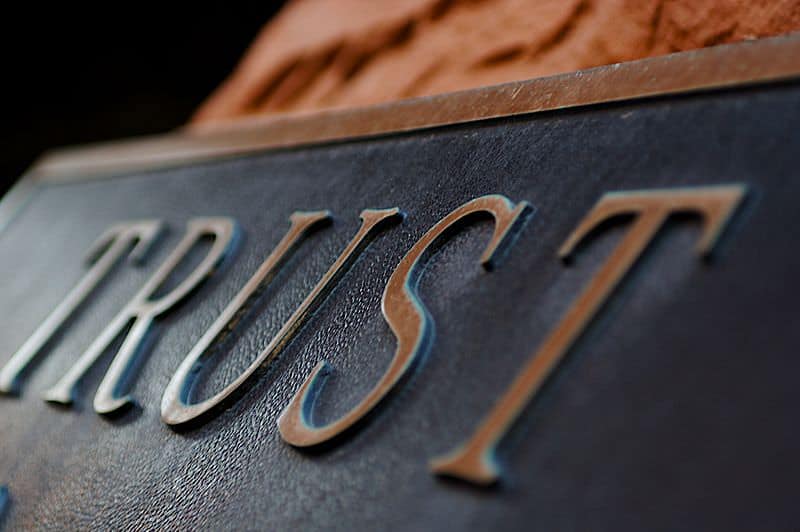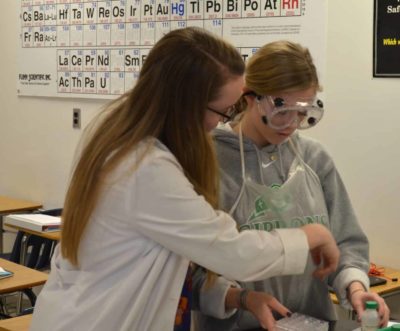

The conventional wisdom – or perhaps wishful thinking – of Washington pundits projects that President Trump’s deeply disruptive budget will get a thorough overhaul in Congress. Some proclaimed it DOA: dead on arrival.
Republican governors, senators and members of Congress have objected to this cut, or that slash, called for by the Republican president. Perhaps, it is said, the budget package is only the opening play of a master deal-maker.
In education, the Trump budget proposes a $9.2 billion cut – a reduction of 13.5 percent – in federal funding across K-12 schools and higher education. Maybe not so devastating, some suggest, because state and local governments bear most of the costs of education. In North Carolina, for example, the federal government accounts for 9.6 percent of public education funding – nearly $1.4 billion out of $14.2 billion a year.
Maybe the pundits have it right – maybe even a Republican-majority Congress can’t bring itself to enact a budget that piles on new military spending while cutting or eliminating funding for environmental regulation, regional economic development, job training, the arts and humanities, new transit and Amtrak and even the State Department. But, beyond the specific budget items and its legislative prospects, there are deeper stories about what the Trump proposal says about national priorities and widespread popular attitudes toward public institutions.
The education budget serves to illuminate. Trump proposes elimination of grants for the professional development of teachers and for after-school and summer programs. The changes would cut work-study and other efforts to help low-income students prepare for college and to complete a degree. At the same time, it would put additional money into charter schools and private-school vouchers.
The shift in priorities is from aid to disadvantaged students in public institutions to giving parents financial assistance to choose schools, whether public or private. And this shift comes in an era of erosion of popular trust and confidence in public and community institutions, of many kinds, including education.
In a recent essay in The Washington Post, Bill Bishop, a Texas-based writer on social trends, explored the “decline in trust’’ over several decades. And he points out that the American electorate remains divided along partisan and ideological lines.
“A polarized and distrustful electorate may stymie the national government, but locally most communities are either overwhelmingly Republican or Democratic,” Bishop writes. “In 2016, eight out of 10 U.S. counties either gave Trump or Hillary Clinton a landslide victory. In these increasingly homogenous communities, nobody need bother about compromise and the trust it requires.
Bishop is co-author of the influential book, “The Big Sort: Why the Clustering of Like-Minded America is Tearing Us Apart.” A personal note: He has been my friend since he and I spent a year in residence in 1996 at MDC, the Durham-based nonprofit research organization.
“We haven’t simply changed our attitudes,” Bishop writes. “We’ve voted with our feet, walking away from the institutions we supported for generations…We have become, in Polish sociologist Zygmunt Bauman’s description, ‘artists of our own lives,’ ignoring authorities and booting traditions while turning power over to the self.”
The Trump administration reflects that “walking away.” The president and his aides ask rhetorically, why spend more money on programs and projects that do not show a definitive payoff? Instead of figuring out, say, how to replenish the pipeline of high-quality teachers and principals, their answer is basically to retreat.
Public-education supporters read the same test scores and surely share an abiding concern that public schools are not performing well enough. Their response is to “walk toward’’ the schools with persistent efforts to upgrade them.
Indeed, public schools are no doubt better than ever, but not good enough. You can say that about schools at almost any moment; as knowledge expands, demography shifts, technology advances, public schools confront fresh challenges of how to educate young people to live fulfilling lives and to thrive in economic and civic life. The United States will remain a nation of diverse schooling, a mix of public and private, but at issue in the big debate over schooling is whether Americans will walk toward, rather than walk away, from the “public’’ in their public life.


